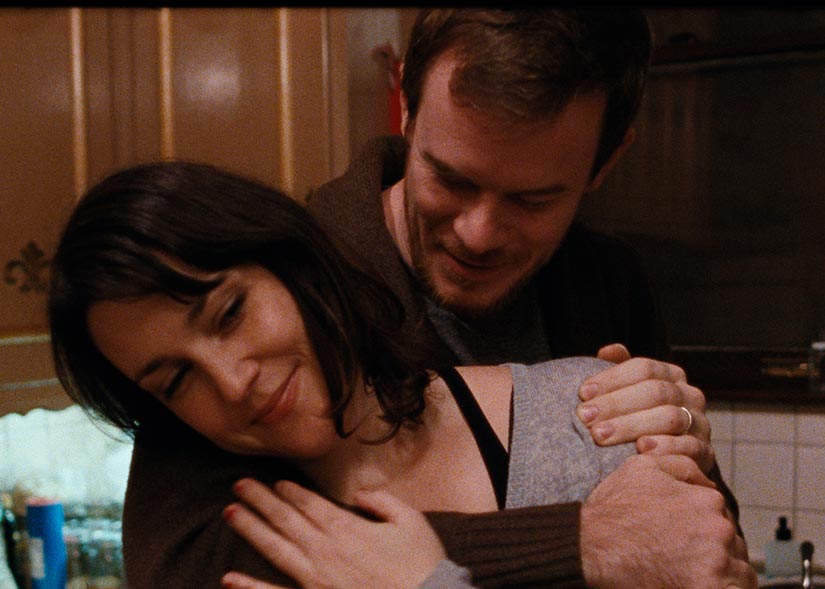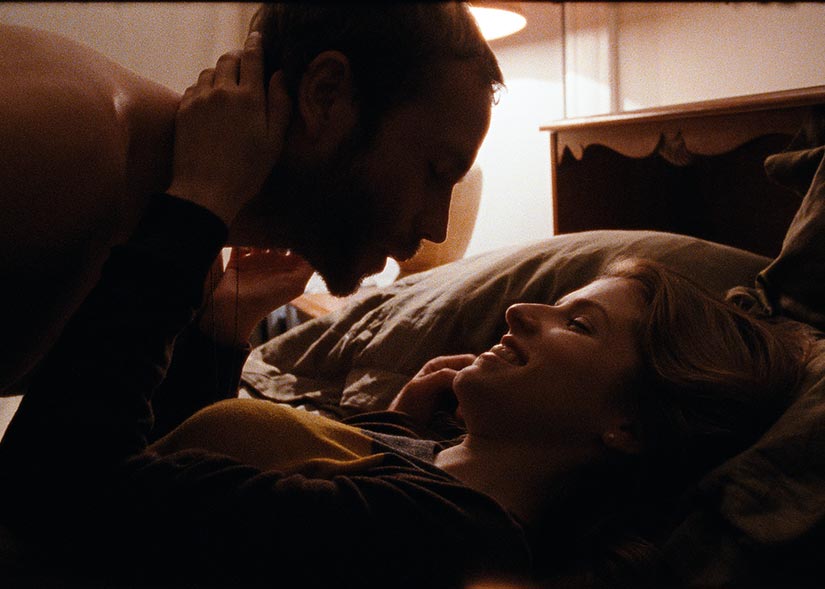Mumblecore has been growing into prominence within the independent film scene in recent years thanks to a few notable filmmakers like Lena Dunham (Girls, Tiny Furniture), Jay and Mark Duplass (Jeff, Who Lives at Home), and Joe Swanberg (Drinking Buddies). It took awhile, but I eventually warmed up to the genre’s focus on naturalism, whether it’s due to the actors’ improvised performances, the use of a loose outline rather than a traditional screenplay, or the presence of an actual film camera (16mm specifically for Happy Christmas) rather than a digital one. The aesthetic behind independent, low-budget films is the backbone of the genre, and it’s surprising that it took me so long to better appreciate it.
Or perhaps it’s because I was waiting for the right filmmaker, and that’s where Swanberg comes in. Partially because of his talents as a filmmaker, partially because of the stories he wants to tell, or partially because he is now a Chicagoan, there’s something special about Swanberg’s films that I’m drawn to. Read on as I find the words to help express why I felt so strongly about Happy Christmas.
[youtube id=”7VaaYbraOrQ”]
Happy Christmas
Director: Joe Swanberg
Rating: PG-13
Release Date: June 23, 2014 (VOD)
Following a breakup, 20-something Jenny (Anna Kendrick) decides to move to Chicago and live with her older brother, Jeff (Swanberg), his wife Kelly (Melanie Lynskey), and their newborn son, Jude (Swanberg’s actual son). As Jenny attempts to rediscover her identity, whether it’s simply by hanging out with her friend Carson (Dunham) or exploring a new relationship with the family babysitter, Kevin (Mark Webber), her presence has an undeniable impact on Jeff and Kelly’s lives… for better or for worse.
However, whereas most films may take the easy “self-discovery/identity” route with a typical narrative structure with their protagonists, Happy Christmas defers from what’s become expected and standard in a narrative film. Without spoiling the film, I’d say the focus isn’t directly on Jenny and her story (despite her being the main character), but how her presence shapes and develops Kelly’s character. Kelly’s story is much more intriguing than Jenny’s as she attempts to re-balance her artistic leanings with her newfound responsibilities as a new mother, but it’s through Jenny’s scope that we’re able to see how those two seemingly opposite spectrums can work together.
Happy Christmas shares a universal appeal, but has an extra special element that Chicagoans can appreciate a little more. As a 20-something myself with friends starting their own families, I can understand and empathize (a bit) with finding the compromise between work and family, which is something I think most Chicagoans feel given the “grind” and “hustle” the city offer, combined with the “Midwestern family values” we inherently share. Given the indie, low-budget nature of the film, Happy Christmas also feels like a passion project made with friends, to the point where I was actually shocked to see a casual acquaintance of mine as an extra in the film (Erin, you really do deserve an award for being Best Stander).
It’s because of Swanberg’s ability to create a small film with a small focus with a 16mm camera that further accentuates that direction that helps make Happy Christmas work so well. The actors individually have their own levels of success both in and out of the film community, most notably Kendrick’s growing star in Hollywood and Dunham’s large success with Girls, yet they’re still able to embody these roles and characters that allow you to truly believe their characters and make you think, “Yeah… I could see myself grabbing a beer with them.” Granted, this is what an actor’s job is to do, but when was the last time you watched a Tom Cruise or Brad Pitt film and realistically envisioned yourself holding an actual, insightful conversation with them? Again, this comes down to Swanberg’s whole vision for his projects that makes audiences truly connect with his characters. And it’s because of this singular ability that I personally am so drawn to his films.
The big question, then, is how general audiences will receive Happy Christmas. As somebody who finds joy in analyzing and critiquing films, there’s so much going on with Happy Christmas, both narratively and technically/cinematically, that I loved just focusing on and breaking apart. However, for somebody who’s looking for a weekend rental or an impulse purchase, you might be expecting something different. Yes, there are legitimately funny scenes in Happy Christmas, but you won’t be slapping your knees and gasping for air. Instead, I hope anybody that watches Happy Christmas can appreciate the film for what it is: an honest look at familial relationships that can be both funny and depressing… sometimes even at the same time.


